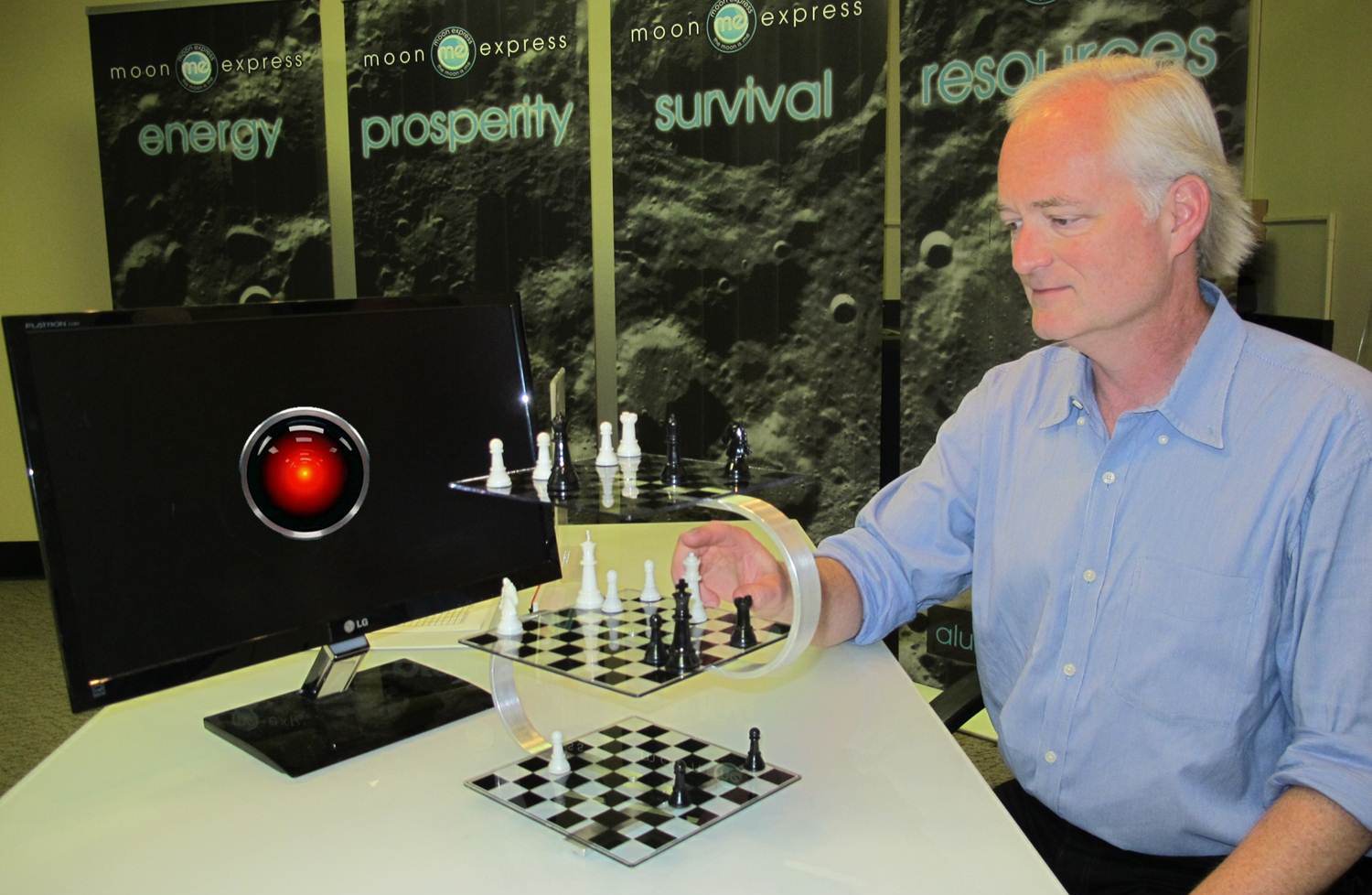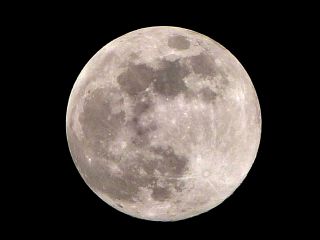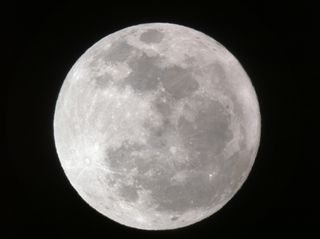
A former Google bigwig has set his sights on the heavens, leaving the search giant to join a company that aims to provide commercial and scientific missions to the moon.
Jimi Crawford, who had been engineering director for the Google Books project since 2009, has signed on with Moon Express, the company announced today (July 12). Crawford will serve as chief technology officer and software architect for the Silicon Valley firm, which is competing in the Google Lunar X Prize, a $30 million private race to the moon.
Crawford said he's excited to join Moon Express, which he believes has the potential to help humanity extend its footprint beyond our home planet.
"Everybody that creates a startup in Silicon Valley, they all try to say they're going to change the world. Here, it's just so completely obvious," Crawford told SPACE.com. "The idea that private enterprise can get to the moon, the idea that the U.S. is back on the moon after 45 years — it's hard to compare that with any other job that you actually get paid to do." [NASA's 17 Apollo Moon Missions in Pictures]

Chasing the prize
Moon Express is one of 25 teams participating in the Google Lunar X Prize, an international challenge to land a robot on the lunar surface, have it travel at least 1,650 feet (500 meters) and send data and images back to Earth.
The first privately funded team to do all of this will receive the $20 million grand prize. An additional $10 million is set aside for second place and various special accomplishments, such as detecting water, bringing the prize's total purse to $30 million.
Get the Space.com Newsletter
Breaking space news, the latest updates on rocket launches, skywatching events and more!
Moon Express is one of the higher-profile teams chasing the X Prize. In 2010, it scored a contract worth up to $10 million as part of NASA's Innovative Lunar Demonstration Data program. And this past May, it acquired another X Prize competitor, the Colorado-based Next Giant Leap team.
The X Prize wraps up whenever all prizes are claimed — or, failing that, at the end of 2015. Moon Express officials say they're on target to beat the deadline.
"Our current plan is certainly to accomplish the first private landing on the moon before the expiration," Moon Express co-founder and CEO Bob Richards said.

Dreaming big
But Moon Express is thinking far beyond the X Prize, which Richards described as a highly desirable goal, but not the driver of the company's plans.
Moon Express wants to ferry payloads to the moon for paying customers, be they private companies, scientific institutions or government agencies. And the company sees a lot of opportunity in this field, both in the short and long terms.
"We'll be able to offer rides to the moon to other countries, to universities, at price points that make it accessible and therefore broadens the marketplace for us," Richards told SPACE.com. "Over the next five to 10 years, hopefully we will be delivering a whole new era of accessibility to the moon and lunar facilities, which will give rise to other people's demands for missions."
The company's ultimate goal, Richards added, is to help explore and develop lunar resources, which could benefit humanity and help us extend our presence beyond Earth.
Crawford will try to help make all of this happen by guiding the development of Moon Express' spacecraft and mission software and any other advanced technologies the company requires.
Crawford is no stranger to the space field, having led the Autonomy and Robotics program at NASA's Ames Research Center in Moffett Field, Calif., for four years. His teams' work aided various NASA missions, including the Phoenix Mars lander and the Spirit and Opportunity Mars rovers.
Moon Express counts fellow NASA alum Barney Pell among its co-founders, and Crawford said the firm's combination of NASA know-how and Silicon Valley mindset should set it apart.
"We're trying to marry the cultures," Crawford said. "We're trying to set up a really strong partnership with Ames and with other NASA centers to bring in space expertise, but set up the culture to be as much as possible a Silicon Valley culture, in terms of willingness to take reasonable amounts of risk, the pace and the heartbeat of the organization, being reasonable about processes and also doing VC [venture capital] funding."
Follow SPACE.com senior writer Mike Wall on Twitter @michaeldwall or SPACE.com @Spacedotcom. We're also on Facebook and Google+.
Join our Space Forums to keep talking space on the latest missions, night sky and more! And if you have a news tip, correction or comment, let us know at: community@space.com.

Michael Wall is a Senior Space Writer with Space.com and joined the team in 2010. He primarily covers exoplanets, spaceflight and military space, but has been known to dabble in the space art beat. His book about the search for alien life, "Out There," was published on Nov. 13, 2018. Before becoming a science writer, Michael worked as a herpetologist and wildlife biologist. He has a Ph.D. in evolutionary biology from the University of Sydney, Australia, a bachelor's degree from the University of Arizona, and a graduate certificate in science writing from the University of California, Santa Cruz. To find out what his latest project is, you can follow Michael on Twitter.